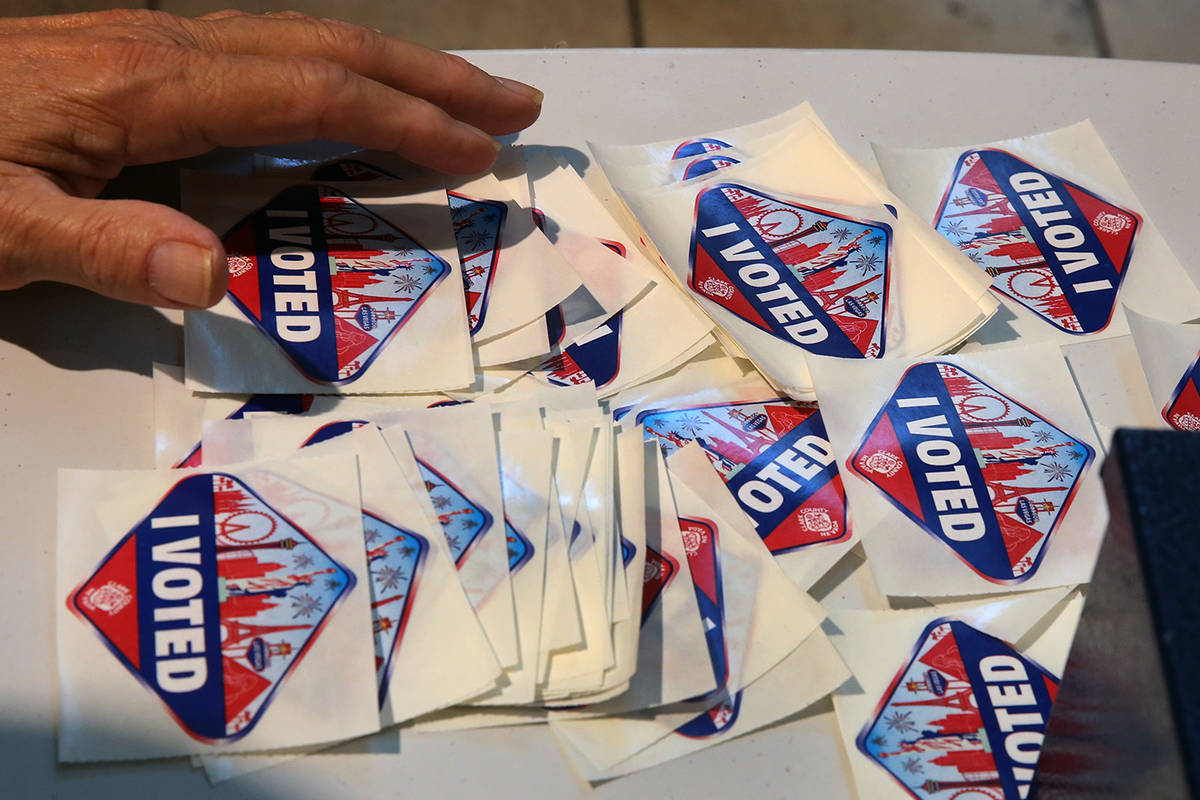Reviewjournal.com launches online voter guide for mail-based primary
Reviewjournal.com this week launched Voter Guide 2020, an interactive tool designed to help Southern Nevada voters make informed choices in the state’s mail-based primary election.
The newspaper reached out to every candidate appearing on Clark County’s June 9 primary ballot — in races for Congress, the Nevada Legislature, the Clark County Commission, the Clark County School Board and other offices — to compile stories on each contest.
After entering an email address, home address and party affiliation, users will be shown biographical and background information on candidates who responded to reporters’ questions. The guide uses a voter’s home address and party affiliation to determine which races appear on a ballot. The guide then provides stories and information only for those races, including links to candidate websites and social media accounts, simplifying candidate research.
A video tutorial explaining the process can be found at www.reviewjournal.com/voterguide.
Users can select preferred candidates. There is an option to receive an email with a sample ballot reflecting those choices. Selections also can be marked directly on the mail-in ballot.
Primary ballots already have been mailed to voters. The election was shifted to an almost all-mail format because of concerns that traditional in-person voting would worsen the COVID-19 pandemic. Voters still may vote in person on Election Day at a limited number of sites.
“Because this primary election cycle has denied so many voters the ability to meet candidates in person or attend campaign or party events, the Review-Journal has worked hard to provide as complete a guide as possible to ensure Southern Nevadans have all the information they need,” Review-Journal Executive Editor Glenn Cook said.
Review-Journal staff also conducted a series of video judicial debates in all departments of the state Supreme Court, Clark County District Court and Clark County Family Court on the primary ballot. The debate videos and stories summarizing each debate can be accessed via Voter Guide 2020 and can be found on the Review-Journal’s website at www.reviewjournal.com/judicialdebates/.
“Judicial races are nonpartisan, so every voter in Clark County, regardless of registration, will be able to vote in every judicial primary race — more than 20 total,” Cook said. “These debates are a tremendous resource for voters because judicial candidates were denied the ability to appear at so many candidate forums where they could have distinguished themselves from one another.”
Cook also pointed to the Review-Journal’s “Judging the Judges” judicial performance evaluations, which were conducted last year, as a resource for voters when considering whether to retain an incumbent jurist.
Nevada is a closed primary state, meaning a voter must be registered as either a Democrat or Republican to participate in that party’s nominating contest for a partisan race, such as the U.S. House of Representatives. Anyone registered as nonpartisan or in a minor party will not be able to vote in these contests and will not see these races as they navigate the online voter guide.
Answers to frequently asked questions about the primary election can be found on the Review-Journal’s website.
Voter Guide 2020 and “Judging the Judges” are subject to reviewjournal.com’s pageview limits for nonsubscribers. Subscribers get unlimited access to all reviewjournal.com content. To subscribe, go to checkout.reviewjournal.com.
Contact Rory Appleton at rappleton@reviewjournal.com or 702-383-0276. Follow @RoryDoesPhonics on Twitter.























